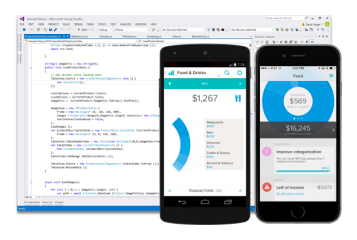Hybrid Or Native : Which one is better for your enterprise
With any startup or company working on a budget, choosing whether to build...
VIEW MOREEnterprises today
have to think across multiple
devices and platforms for any mobile app they want to create. By opting for cross-platform apps,
they will be able to not only achieve greater market penetration, but also get other benefits such
as lower time to market on all supported platforms. By opting for hybrid app development
architecture, enterprises can be assured better code maintainability because of a single code base.
These apps are generally written in ‘web languages’ – HTML, Javascript and CSS – though now
platforms using other popular languages like C# for .NET have also come along. These are then either
compiled into native code and then deployed (aka Appcelerator) or they have native wrappers around
them for deployment on iOS, Android and Windows Phone devices.
Cross-platform development is an approach that allows a single codebase to be developed for multiple
platforms or software environments
 26 MAR 2018
26 MAR 2018
With any startup or company working on a budget, choosing whether to build...
VIEW MORE 12 JUN 2018
12 JUN 2018
These ‘cross-platform’ frameworks. Why do they even exist ? Because...
VIEW MORE 15 MAY 2018
15 MAY 2018
Nowadays, Having mobile application for your growing business is more...
VIEW MORE